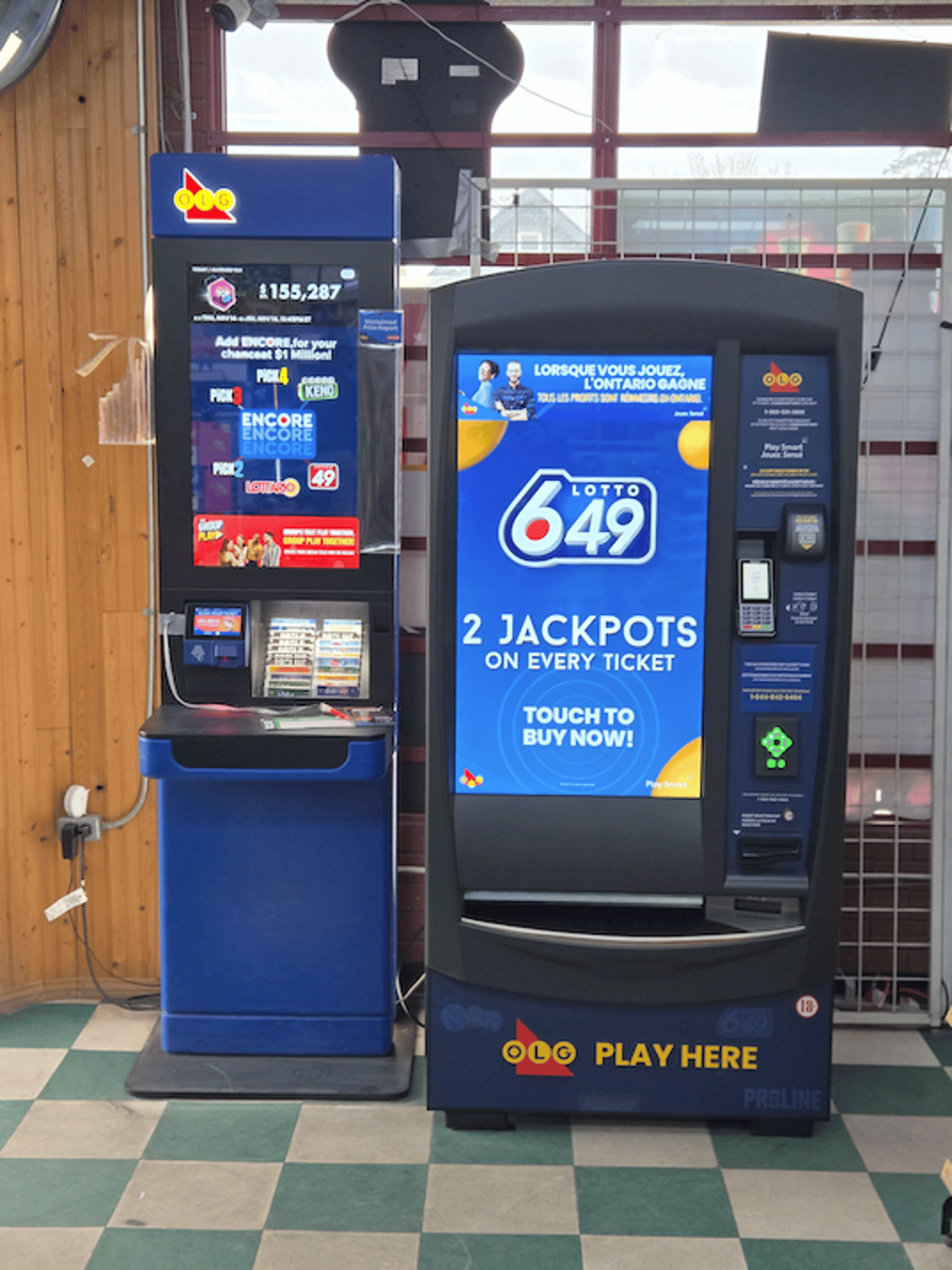In it to win it with self-serve lottery terminals
Self-serve checkouts are a familiar sight in retail. But here’s an emerging innovation well-suited to c-stores that could help reduce customer line-ups, while driving incremental revenue without risk of theft: terminals with age-verification technology for the purchase of lottery games and scratch cards. The Ontario Lottery and Gaming Corporation (OLG) is in the midst of a province-wide rollout of self-serve lottery terminals (SSTs) with touchscreens displaying national and regional draw-based lottery games, as well as instant scratch cards like Crossword and Bingo.
With a scan of a valid driver’s license or Ontario ID card—plus a debit or credit card—customers can choose their gambling products, without needing to interact with a cashier. “We have over 500 of our 1,400 SSTs installed to date, with currently half of the units in our valued convenience and gas channel,” says Tony Bitonti, director, media relations at OLG. “Research shows self checkout options are increasingly preferred by customers, a trend that was accelerated by the pandemic.”
He notes the SSTs are intended to drive incremental sales and relieve congestion at point-of-sale areas.
The terminals—which each weigh over 1,200 lbs and measure 36 inches wide x 74 inches high x 27 inches deep—will also be upgraded in 2025 to include the ability for customers to redeem lottery ticket winnings, but only back onto their debit cards, as cash redemptions will not be an option.
“This is meant to be another measure of ensuring that those who are redeeming a lottery prize are at least 18 years or older,” says Bitonti.
How are B.C. and Alberta using the technology?
Ontario is the third region in Canada to introduce SSTs and second to do so in convenience stores. British Columbia Lottery Corporation (BCLC) has operated SSTs in its hospitality network (restaurant and bars) and casinos for several years, but not its retail network. A spokesperson says there are no plans to introduce them into retail.
Atlantic Lottery Corporation (ALC) deployed its first SSTs in 2022, and currently has 124 terminals in retail sites across Atlantic Canada.
“We’ve received positive feedback on this modern and convenient option from players and retailers alike and we continue to identify additional potential locations to expand availability in the region,” says Greg Weston, communications strategist at ALC. “This is still relatively new to our market, so we continue to learn where they perform best.”
The Ontario rollout follows an OLG pilot that kicked off in February 2024, involving about 140 retailers within roughly 100 km of OLG head office locations (for easy access to tech support). IGT Global Solutions Corporation, the primary tech supplier to eight of the world’s 10 largest lotteries, designed and built the terminals.
READ: OLG eyes self-serve lottery terminals in retail locations
In addition to their expertise, Bitonti says “BCLC and ALC were instrumental in sharing their learnings.”
What do SSTs mean for commissions?
OLG’s retail partners with a SST in their store earn the standard sales commissions, as well as bonus commissions for selling big-winning tickets through their terminals (the same way they do when selling at their retail counters).
The same applies in Atlantic Canada, except for retailers who don’t otherwise carry lottery products. In those cases, “Atlantic Lottery field staff supply and service their terminals and inventory, resulting in a lower commission rate,” notes Weston.
Age verification and mitgating risk
While the SSTs automate the age-verification process, the terminals aren’t meant to wash the store’s hands of ensuring the machines aren’t being misused. “Retailers remain responsible for ensuring age of majority laws are followed at their locations,” says Weston, noting Atlantic Lottery’s mystery shopper compliance program has expanded to include SST purchases.
Training is also provided to retailers on the use of SSTs, including controls for mitigating access by minors. The terminals, both in Ontario and Atlantic Canada, feature a remote shut-off key fob, in the event a retailer suspects underage and/or intoxicated players are using them.
“Finally, we consult with retailers to place the terminals in high-visibility locations with direct line-of-sight for employees to enable effective observation,” says Weston. The SSTs also feature responsible gaming messaging.
To mitigate privacy risk and concerns, no personal information or personal data is retained in the terminal onboard memory or backend systems.
Terminals have numerous accessibility features. In Ontario, for instance, they include an ODA navigational keypad, while a QR code is being developed to help inform users of the features.
Both ALC and OLG are committed to ongoing enhancements of the SSTs and encourage retailers to reach out to their lottery representatives if they’re interested in an SST.




